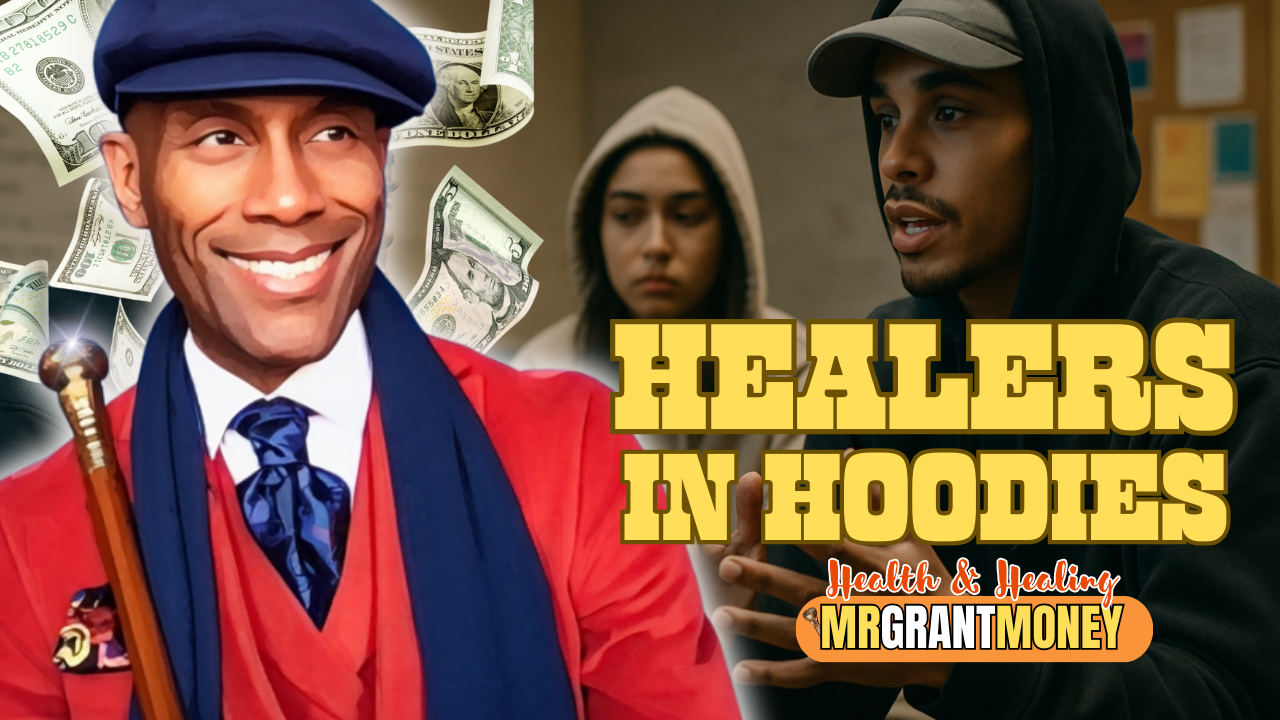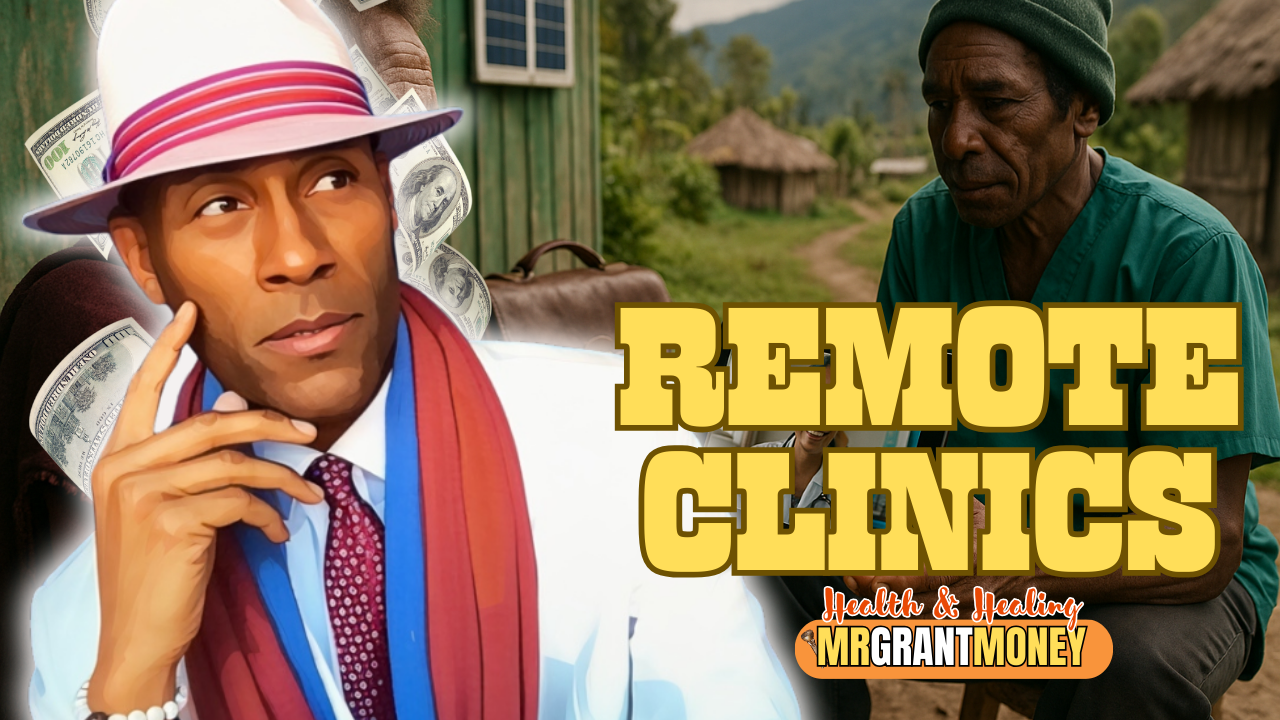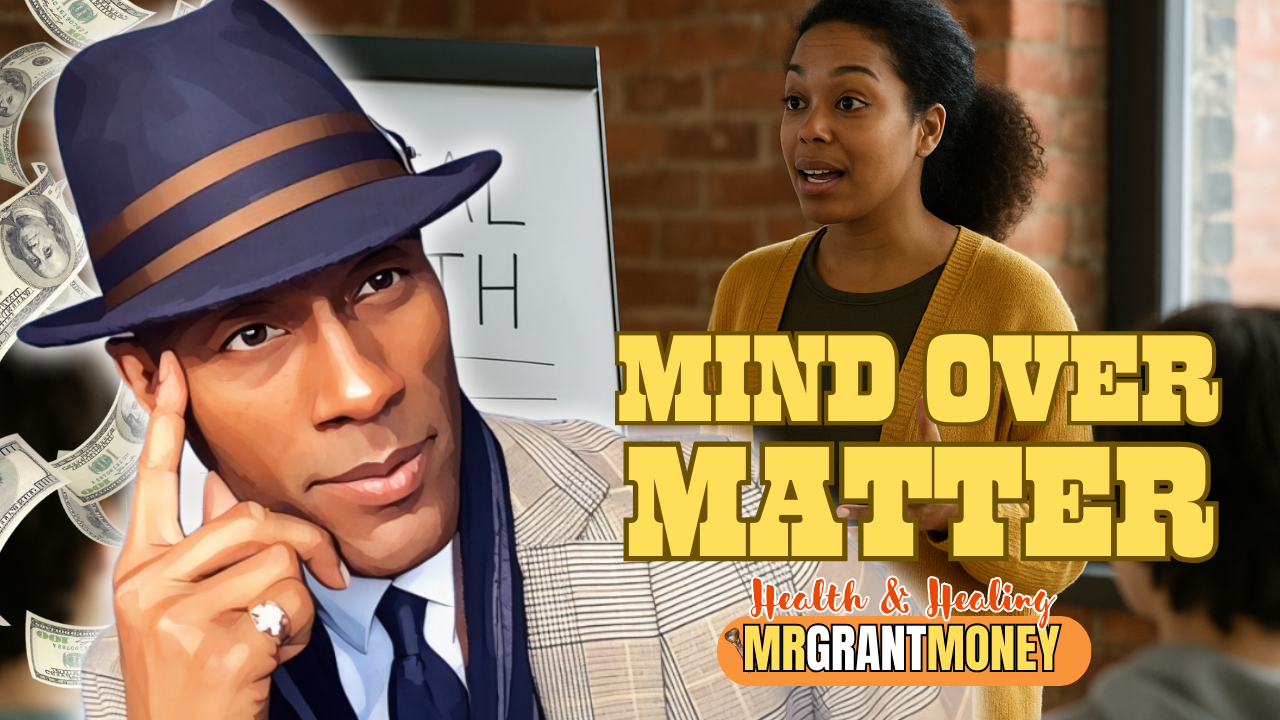The Health Hack: Mr. Grant Money & The App Saving Lives


A One-Room Office, a Chai Stall, and the AI-Powered Tool That Global Funders Almost Missed
Too Small, Too Scrappy, Too Far Away
“Nobody builds world-changing tech from a one-room office above a chai stall.”
That’s what investors told them. Mentors. Even a panel of startup judges at a pitch competition where the projector gave out mid-demo. They were told they were too early, too messy, too local. A hobby, not a company. A prototype, not a product.
But the three friends behind the idea—Dev, Aanya, and Ravi—weren’t looking for permission. They were building because the need was right there in front of them. And they knew the system wasn’t going to solve itself.
Dev was an engineer who had worked on offline-first tech. Aanya was a med student who’d done rural rotations and seen how slow diagnosis could cost lives. Ravi was a data scientist who had a thing for making messy systems readable.
Together, they built an AI-powered mobile app to help rural health workers diagnose common conditions, flag emergencies, and refer patients with accuracy—all while working offline and syncing data later. No fancy interface. Just what frontline health workers actually needed.
One Pilot. Big Results. Zero Resources.
They didn’t wait for approval. They tested the app in a village outside Mysore, training four local health workers. The results spoke for themselves: faster identification of high-risk cases, shorter time to referral, and a visible increase in patient trust.
But good results don’t buy server space. Or pay for compliance checks. Or cover field staff.
The pilot was running on fumes—built on personal savings, a little crowdfunding, and an unreasonable amount of sleep deprivation. They needed funding. Not someday. Now.
But their inboxes stayed quiet. No one from the Gates Foundation or Wellcome Trust was reading cold emails from a Gmail account with a half-broken signature. Global health innovation money flowed—just not in their direction.
The Referral That Changed Everything
Then one day, a visiting doctor from Canada who had spent time consulting in Delhi saw their pilot in action. He didn’t see three students playing startup—he saw a scalable tool solving a real-world problem.
He didn’t give them money.
He gave them something better.
A name: Mr. Grant Money.
Enter: Mr. Grant Money (and the Suit That Meant Business)
Two weeks later, a sharply dressed man stepped into the second-floor office above the chai stall. Tailored charcoal suit. Black notebook. Polished oxfords somehow untouched by Bangalore dust.
“You’re the ones behind this app?” he asked, flipping open his notes.
“Yeah,” said Aanya. “And no, we don’t have a pitch deck.”
Mr. Grant Money smiled. “Good. Decks are overrated.”
He didn’t ask them to refine their pitch. He asked for data, user logs, and their post-pilot feedback. He wanted to see the real picture—not the glossy one.
Then he opened his notebook and started naming doors:
-
USAID’s Development Innovation Ventures
-
Grand Challenges Canada
-
The WHO’s Digital Health Accelerator
-
Funding from India’s Department of Biotechnology via partnership with a research institute
“Most of these grants are designed for exactly what you’ve built,” he said. “You’re just not speaking their language yet.”
The Funding Game (and How to Win It)
Over the next month, Mr. Grant Money worked with them like a strategist, not a savior. He helped them reframe their pilot results as early-stage impact data. Helped them build a logic model. Identified measurable KPIs funders could trust. Connected them with a public health nonprofit that agreed to be their fiscal sponsor—a requirement they hadn’t even known about.
He even helped them prepare for the due diligence interviews, knowing that global health funders love specifics:
-
How would the algorithm be updated over time?
-
What about clinical validation?
-
Data security protocols?
-
What happens if the internet goes down for a week?
They didn’t fake the answers. They built the answers. And that’s what made the difference.
From Chai Stalls to Geneva
Their first grant—$150,000—came from a global health innovation fund focused on underserved regions. Enough to upgrade the platform, run five more pilots across Karnataka, and validate the data under multiple field conditions.
Three months later, they were invited to present at a digital health summit in Geneva.
Suddenly, the same judges who once dismissed them were asking for partnership decks. And funders who had ignored their emails were DMing them on LinkedIn.
What Most Founders Don’t Know About Global Health Funding
Mr. Grant Money didn’t just help them win a grant. He helped them unlock a playbook few innovators ever see:
Most health innovation grants go unclaimed by local builders—not because they’re unqualified, but because they don’t know the rules of the game. They don’t have time to translate field experience into funder-friendly frameworks. They don’t have policy partners on speed dial. And they’re rarely told that credible impact doesn’t need to be polished to be powerful.
That’s where Mr. Grant Money comes in.
He doesn’t care where the idea starts.
He cares where it’s going—and whether the world can afford to ignore it.
Some of the Best Tech on Earth Gets Built Above a Chai Stall
Today, the team is negotiating with a health ministry in Southeast Asia. They’ve been approached by a telecom company looking to embed the app into low-cost Androids for frontline workers.
What started with one village pilot is now saving lives across regions.
And yes—every time they walk into a new funder meeting, someone always asks about the chai stall story.
Because sometimes, the best ideas in the world don’t start in Silicon Valley.
They start where the need is loudest and the budgets are quietest.
And sometimes, all it takes is one man in a suit who knows where the money lives—and how to make it move.
Discussion & Personal Reflection Questions
-
What challenges did the team face because of their location and lack of resources—and why do those factors often keep good ideas from getting noticed?
-
How did their real-world pilot (not just a prototype) help them stand out to someone like Mr. Grant Money?
-
Why is “grant language” different from how most builders talk—and how can learning to translate impact into funder terms make or break a project?
-
What role did partnerships—like the regional health partner—play in strengthening their grant application? Why is collaboration often key in global health funding?
-
This story shows that life-saving tech doesn’t need to start in a fancy lab. What can we do to better support innovators working in under-resourced settings?
More Resources & Related Topics:
📌 Explore more success stories 📌 Learn about grant acquisition 📌 Discover financial literacy resources 📌 Check out youth entrepreneurship 📌 Browse scholarship opportunities
🔓 UNLOCK EXCLUSIVE TIPS WITH MR. GRANT MONEY!
We hate SPAM. We will never sell your information, for any reason.
















